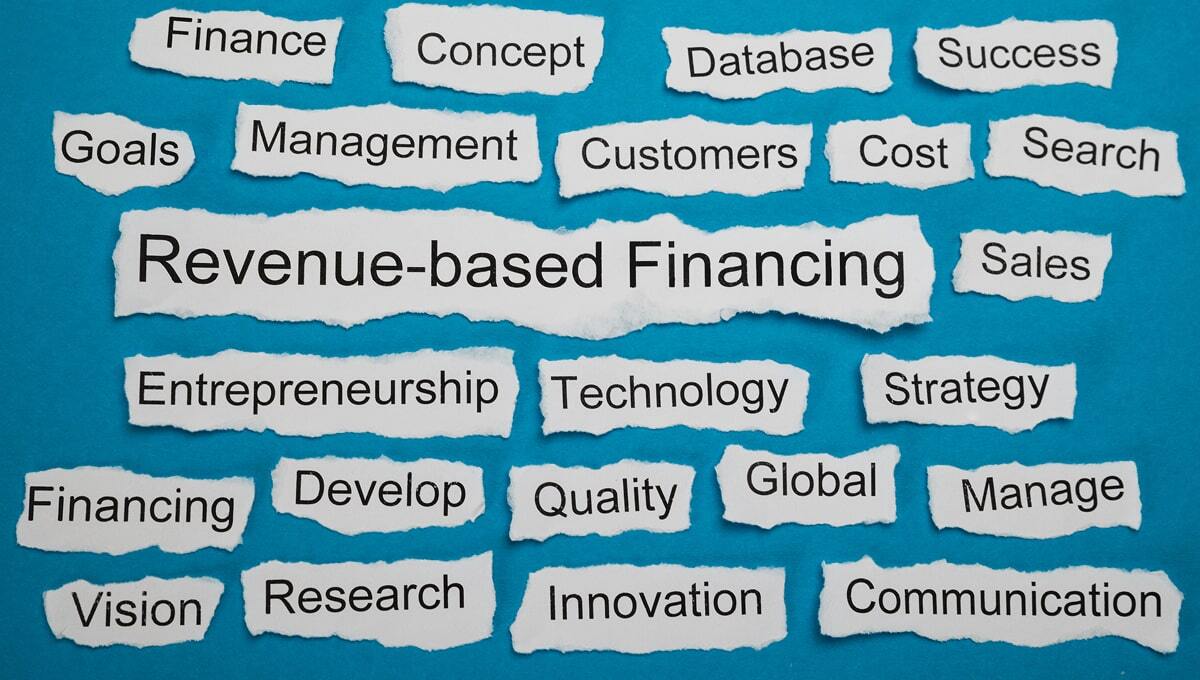How Hard Is It To Get A Business Loan?
By Magenta on Jun 02, 2025

Many small business owners often ask, “How hard is it to get a business loan?” This is a valid concern, especially considering the selection of funding options available today. Although securing a business loan seems like a straightforward task, several things can determine whether a business qualifies.
Traditional loans, lines of credit, and alternative funding solutions all have different requirements, making it important to know the distinct elements involved in obtaining financing.
Let’s look at the difficulties businesses face and the alternatives available to help with funding opportunities.
How Hard is it to Get a Business Loan: Business Loan Requirements
When applying for a business loan, lenders assess a number of things to determine a company's eligibility. These requirements can differ depending on the lender, the type of financing, and the loan amount.
Some common considerations include financial history, cash flow, and the overall stability of the business. Lenders typically prefer businesses that have been operational for a few years, showing evidence of consistent revenue and a clear path to profitability.
For small businesses, the difficulty often lies in meeting these requirements. Many newer companies struggle to show long-term financial history or a proven track record. New businesses may also have unpredictable cash flow making it more difficult for traditional lenders to justify taking on the risk.
For these businesses, securing financing can be an uphill battle, and many find themselves rejected due to a lack of sufficient financial history or steady revenue.
However, knowing the criteria and preparing in advance can help improve a company's chances of being approved. Business owners should work to keep detailed financial records, improve their cash flow management, and develop a clear plan for growth.
These steps may not guarantee approval, but they can increase the likelihood of securing business financing.
Different Types of Business Financing
When asking how hard it is to get a business loan, it’s important to recognize that there are a number of financing options available. Though traditional loans from banks and credit unions have long been the go-to option, more businesses are turning to alternative forms of funding.
Traditional loans often come with strict requirements, such as a solid credit score and several years of business history.
For businesses that struggle to meet these requirements, revenue-based financing is an attractive alternative. Unlike traditional loans, revenue-based financing focuses on a business’s future earnings rather than its credit score or past financial history.
This means that businesses with strong revenue potential, but weak credit history may have an easier time qualifying for financing.
Revenue-based financing allows businesses to access capital quickly and pay it back in a way that is in keeping with their income. This can offer flexibility and a more personalized solution to business financing challenges.
There are also options such as lines of credit and merchant cash advances, which offer their own benefits. However, they have their limitations as well.
A line of credit is generally for higher creditworthy customers with consistent cashflow. They have the benefit of a revolving line of cash, and lower rates, especially when paid off sooner.
MCAs, on the other hand, typically have less rigid requirements but a higher cost and shorter terms. They have similar benefits to revenue-based financing, with a simple application process and quick access to funds. However, MCAs are not as flexible as revenue-based financing.
Businesses must evaluate which type of financing is most appropriate based on their unique needs, financial situation, and future goals.
Knowing and comprehending the options available is the secret to making the best decision about how to meet funding requirements.
Credit History and Loan Approval
One of the most common barriers to getting a traditional business loan is the business owner’s credit score. Many traditional lenders rely heavily on credit history to assess a business’s ability to repay a loan. A poor credit score can make it tough to secure funding through traditional methods. However, business financing doesn’t always hinge on credit score alone.
At Magenta, we do not have a minimum credit score, giving more businesses the opportunity to be approved for funding.
That said, it’s still important for business owners to know their credit history, because it can impact access to funding through traditional routes. Reviewing a business’s credit score regularly and taking steps to improve it can increase the chances of securing a loan in the future, even if it’s not the only factor lenders look at.
The Importance of Cash Flow
When it comes to business financing, cash flow is often more important than a business owner’s credit score. Lenders and alternative funding sources focus on a business’s ability to generate consistent cash flow. This is a direct indicator of its ability to repay a loan or meet financial obligations.
Strong cash flow management can demonstrate a business’s financial health. Even if a company doesn’t have a glowing credit score, it may still qualify for financing.
For businesses with fluctuating or inconsistent cash flow, securing traditional loans can be difficult. However, lenders offering short-term business funding often look more favorably on businesses that can demonstrate strong and reliable cash flow, even if the business is new. This is especially true for revenue-based financing, which allows businesses to pay back the funding as a percentage of their daily or weekly revenue.
For small businesses, understanding cash flow and finding ways to improve it can help open doors to more funding opportunities. These include optimizing billing practices, reducing overhead costs, or increasing revenue.
New and Small Businesses
New businesses face additional problems when applying for traditional loans. Since they lack a proven track record, they may find it difficult to convince traditional lenders to take a chance on them.
Many small businesses have limited assets or capital to offer as collateral, which makes them less attractive to traditional lenders who rely on these guarantees for repayment.
This is compounded by the fact that startups often have unpredictable cash flow, making it harder for lenders to determine the likelihood of the business succeeding long-term. However, funding opportunities for new and small businesses are available through alternative financing.
Options like revenue-based financing can be especially beneficial for startups because these methods focus more on the business's current revenue rather than its history or assets.
New businesses should carefully consider all their funding options. Then, work to create a solid business plan that outlines how they intend to use the funds and generate a return.
While traditional loans may not be an option, other forms of business financing are designed to support businesses in their early stages of growth.
The Impact of Industry on Loan Eligibility
Another influence on a business’s ability to obtain financing is the industry it operates in. Some industries are considered higher risk than others. Lenders may be more hesitant to approve loans for businesses in these fields.
On the other hand, businesses in sectors like technology, healthcare, or professional services may face fewer obstacles when applying for a loan. However, businesses in high-risk industries can still access business financing through alternative sources.
Lenders offering revenue-based financing are frequently more flexible and willing to take on industries with higher risks because they focus on cash flow rather than collateral or industry stability. At Magenta, we proudly fund a wide range of businesses, including those labeled as “high-risk.” We take the time to understand each business model individually, providing tailored support rather than relying on industry stereotypes.
For businesses in high-risk sectors, it's important to work with a dedicated advisor who knows both the industry and the specific challenges it may face when in search of funding. Exploring alternative options and knowing the unique financing outlook of your industry can help you find the right solution.
The Application Process and Time Constraints
The process of securing a business loan can be a time-consuming journey, particularly when dealing with traditional lenders like banks and credit unions. One of the first hurdles that business owners encounter is the paperwork.
Traditional loan applications often require extensive documentation, including detailed financial statements, tax returns, business plans, and personal financial information. This lengthy paperwork process can be intimidating, especially for smaller businesses that may not have the infrastructure or dedicated resources to compile all the required information.
Besides the paperwork, the approval process for a traditional business loan can be slow. It may take several weeks for a lender to review the application, assess the business’s financial situation, and make a decision. During this time, businesses might be left in limbo, unsure of whether they will receive the funding they need.
On the other hand, alternative financing options tend to have much quicker application processes. Online lenders and revenue-based financing solutions usually require less documentation and provide a faster decision-making timeline.
The application process can often be completed in a matter of hours or a few days, allowing businesses to access funds more quickly. At Magenta, we provide a decision typically with an hour. These faster timelines make alternative funding sources a more appealing option for companies that need capital immediately.
With fewer barriers to entry and less paperwork involved, these options cater to businesses that may need immediate cash flow to cover unexpected expenses or seize new opportunities.
Loan Amounts and Terms: What to Expect
The amount of funding you request can influence the loan approval process. For smaller loan amounts, the application process may be quicker and require less documentation. However, as the loan amount increases, so do the requirements. Larger loans often require more extensive financial documentation, a more detailed business plan, and additional due diligence from the lender.
Lenders view larger loans as riskier and may take more time to assess the application. They may request additional information regarding the business’s financials, assets, and ability to repay the loan. As a result, businesses looking for larger loans can expect a longer approval process compared to those applying for smaller amounts.
Conversely, short-term financing options such as merchant cash advances or revenue-based loans often have more flexible terms. These forms of business financing are designed to meet short-term cash flow needs and typically have faster approval times. The repayment schedules for short-term financing differ from traditional loans.
These forms of financing often involve a quicker repayment schedule. This is ideal for businesses that need rapid access to capital but can handle daily or weekly payments.
Knowing the funding amount and repayment structure is important when deciding which financing option works best for your business. Large loans are often necessary for major investments or expansion, but they come with more demanding approval processes.
Short-term financing, on the other hand, can help businesses maintain cash flow but may require more frequent repayments.
Collateral Requirements for Traditional Loans
One of the biggest factors that contribute to the difficulty of obtaining a traditional business loan is the requirement for collateral. Traditional lenders often require businesses to offer tangible assets as collateral in exchange for a loan. This includes real estate, inventory, or equipment.
This acts as security for the lender so they can recover their investment if the business defaults on the loan. For new businesses or startups, this can be an obstacle. Many small businesses have few assets to offer as collateral. This obstacle can make it hard to qualify for a traditional loan. Even well-established businesses that have assets may not be able to provide the necessary collateral to secure a larger loan. This makes securing financing from traditional lenders particularly difficult for many businesses.
Fortunately, unsecured financing options are available. As long as the business can demonstrate consistent revenue and a solid plan for repayment, lenders may be willing to provide funds without requiring collateral.
These types of financing offer more flexibility and are an appealing option for businesses without a lot of assets or those that do not want to risk valuable property.
Alternative Funding Solutions for Quick Access
Alternative funding sources have gained popularity in recent years, especially for businesses that need fast access to capital. Online lenders and revenue-based financing companies offer funding solutions that are often quicker and more accessible than traditional loans. These alternative funding sources use technology to simplify the application process, reducing the need for extensive paperwork and allowing them to make faster decisions.
The appeal of alternative financing lies in the speed and flexibility it offers. Businesses can often access funds in a matter of hours or days. This is a stark contrast to the weeks or months it can take to secure a traditional business loan. Revenue-based financing, in particular, allows businesses to repay the financing based on a percentage of their future revenue. This makes it easier to manage payments without the pressure of a rigid repayment schedule.
This flexibility is beneficial for businesses that experience fluctuating cash flow and need to line up their repayments with their income. Alternative funding may also be more accommodating when it comes to credit history. They are less reliant on credit scores and more focused on the future performance of a business. They provide an opportunity for businesses that may not qualify for traditional loans due to poor credit or lack of collateral.
How Magenta Supports Your Business Funding Needs
The process of securing a business loan can be challenging, but businesses don’t have to face it alone. Magenta funds businesses, particularly through revenue-based financing.
At Magenta, we redefine business financing by offering an easy, fast, and transparent alternative to traditional and alternative lenders. Unlike other funding providers, we require no minimum credit score, making capital more accessible for growing businesses.
With offers typically within an hour and a fast-closing process with minimal documents, we make sure you get the funding you need—without the hassle.
Our clear, straightforward terms eliminate confusion, so you know exactly what to expect. Plus, Magenta provides dedicated support throughout your time as a client, for a personalized experience that goes beyond just funding.
Whether you're expanding, managing cash flow, or investing in new opportunities, Magenta delivers efficient and reliable business financing designed for your success.
Invest in Possible. Contact us today to learn more about how we can help your business grow.
Subscribe by email
These Related Insights

Benefits Of Flexible Funding Solutions For Arizona Businesses

What Is Revenue-Based Financing And How Does It Work?
